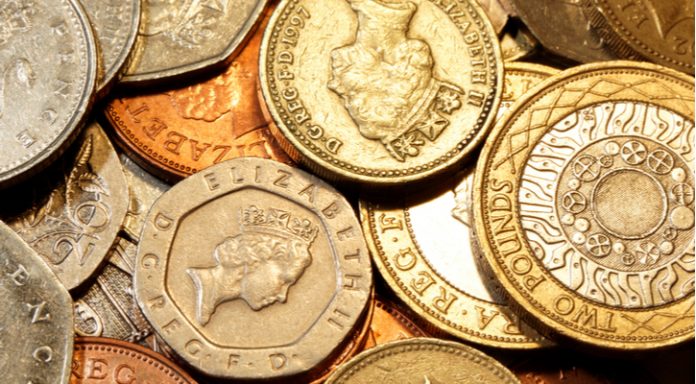The pound shot higher on Monday following news that the EU and the UK had agreed a post Brexit transition deal. The pound spiked to US$1.4088 before giving back some of these gains to close at US$1.4024.
| What do these figures mean? |
|---|
|
When measuring the value of a pair of currencies, one set equals 1 unit and the other shows the current equivalent. As the market moves, the amount will vary from minute to minute. For example, it could be written: 1 GBP = 1.28934 USD Here, £1 is equivalent to approximately $1.29. This specifically measures the pound’s worth against the dollar. If the US dollar amount increases in this pairing, it’s positive for the pound. Or, if you were looking at it the other way around: 1 USD = 0.77786 GBP In this example, $1 is equivalent to approximately £0.78. This measures the US dollar’s worth versus the British pound. If the sterling number gets larger, it’s good news for the dollar. |
Pound traders have been watching Brexit negotiations closely for months. One of the key factors influencing the pound’s direction has been the likelihood of a post Brexit transition deal. Finally today, just ahead of the EU Summit this Thursday, Brexit Secretary David Davis and EU Chief negotiator Michel Barnier announced that a transition pact had been agreed.
The deal will see the UK abide by EU rules for 21 months post Brexit, but it will not have any say in making those rules. The UK has essentially succumbed to almost all the EU’s demands, in order to progress talks onto the trade deal talks. However, the Northern Irish border remains a grey point. There is a backstop agreement that Northern Ireland will remain within the single market should no other solution to its border issue be agreed.
This transition deal is still not legally binding — it will depend on a Brexit deal being agreed, however, it is a big step in the right direction. News of the transition deal boosted the pound as it is a step closer to avoiding a hard Brexit.
| Why is a “soft” Brexit better for sterling than a “hard” Brexit? |
|---|
| A soft Brexit implies anything less than UK’s complete withdrawal from the EU. For example, it could mean the UK retains some form of membership to the European Union single market in exchange for some free movement of people, i.e. immigration. This is considered more positive than a “hard” Brexit, which is a full severance from the EU. The reason “soft” is considered more pound-friendly is because the economic impact would be lower. If there is less negative impact on the economy, foreign investors will continue to invest in the UK. As investment requires local currency, this increased demand for the pound then boosts its value. |
Today market participants will look once more at the UK economic calendar. UK inflation data could cause some volatility ahead of the Bank of England rate announcement on Thursday.
Politics Continue to Weigh onn Dollar
The dollar was out of favour in the previous session, as concerns over the stability of Trump’s administration was once again under the spotlight, in addition to growing fears over a potential global trade war.
President Trump over the weekend, tweeted against special counsel Mueller, challenging his probe into Russia’s interference in the US election, particularly denouncing political bias on the part of Mueller. Trump fears that this probe could choke the life out of his Presidency and rumours had circulated that he would consider firing Mueller. This however, would certainly spell the end to his presidency.
| How does political risk have impact on a currency? |
|---|
| Political risk drags on the confidence of consumers and businesses alike, which means both corporations and regular households are then less inclined to spend money. The drop in spending, in turn, slows the economy. Foreign investors prefer to invest their money in politically stable countries as well as those with strong economies. Signs that a country is politically or economically less stable will result in foreign investors pulling their money out of the country. This means selling out of the local currency, which then increases its supply and, in turn, devalues the money. |
Investors will continue to watch developments in Washington whilst also looking towards the Fed’s rate decision on Wednesday.
|
This article was initially published on TransferWise.com from the same author. The content at Currency Live is the sole opinion of the authors and in no way reflects the views of TransferWise Inc. |





